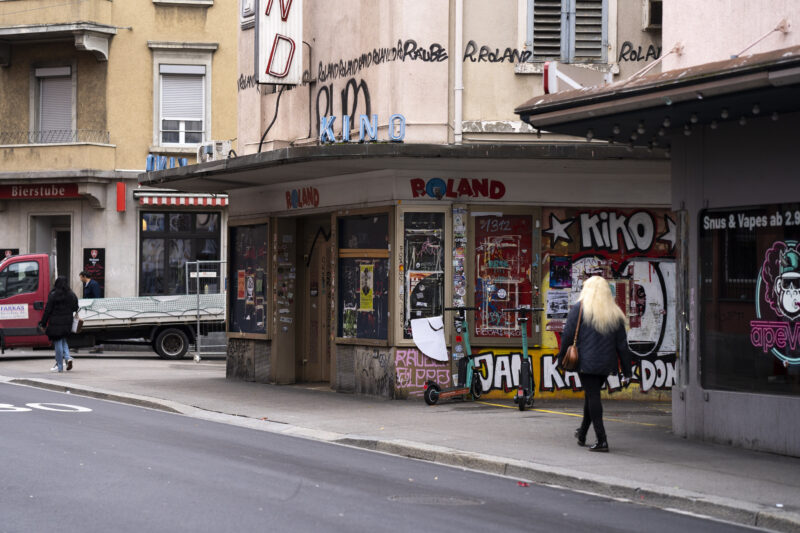In hijab-inundated northern Nigeria, where I grew up, as well as in many other parts of Nigeria, sex and sexuality are taboo subjects. Prostitution is a ‘night trade’ that is conducted secretly in the darkest of alleys and on the marginal fringes of society. You will barely know the rubrics. Sex work is illegal in Nigeria and sex workers have no legal rights.
Those who practice the trade do so under great risks and threats to their life and dignity. They could be randomly arrested, forced to have sex with law enforcement agencies to be granted back their freedom, and abused verbally and physically by members of the conservative and traditional communities in Nigeria.
Many sex workers cannot openly admit that sex work is their day job. The hypocrisy of the state’s criminalization of sex work is demonstrated by the reality on the ground: The demand for sex workers is as high as ever and many sex-related institutions such as hotels and red-light districts are thriving as economic models and sources of livelihoods in Nigeria.
Sex work on the liberal market
I became fascinated by sex work and the red-light districts in Switzerland for certain reasons. One of them were the marked differences in how sex work is regarded in both countries. The legality and liberality of sex work in Switzerland contrasts sharply with the conservative nuances it is surrounded with in Nigeria. Here in Switzerland, sex is a commodity on the liberal market, and legally so!
Another reason for my interest was that Nigeria ranks 4th on the index of countries from which victims trafficked for sex work into Switzerland originate from. I found myself trying to analyse the marked differences between sex work in Nigeria and Switzerland, and what I found out was literally ‘JAW-DROPPING’! Every time I make a new discovery on the issue, I am wide-eyed, like a toddler who just tasted ice-cream for the first time. You know when the combined effects of the coldness and sweetness hits your brain cells simultaneously? That’s it!
To start with, in this country, like everything Swiss (or most of it), sex work and prostitution is envisioned to be organised and official. For how can Switzerland be the bastion of freedom and liberty if sex work is illicit? Consequently, in 1942 (even before women were allowed to vote!), the government made the decision to legalize prostitution – while pimping and forcing people to prostitute themselves still remained illegal.
Follow Medinat, as she chronicles the lived experience of a Nigerian living in Switzerland. With a mixture of humour, satire, story-telling and metaphorical symbolism, Medinat’s monthly highlights will reveal to you Switzerland and the Swiss in ways you never knew, never imagined, or never noticed. She is after all living her new Swiss life the Nigerian (Naija) way. Medinat is a Senior Lecturer at the ETH Zurich.
Surprised family members
I love to tell my family about life in Switzerland. But imagine the surprise when I told my tradition-focused mother that there are licensed brothels here, and that you can use your flat, hotel, or Airbnb-apartment as a brothel, as long as not more than 5 people are selling sex at the same time. Or can you imagine the bewilderment of my extremely conservative father when I causally mentioned to him that some prisoners are allowed to visit prostitutes as part of ‘social therapy’? The look on his face was EPIC!
In the middle of exchanging gossip on the family WhatsApp group, I explained that sex workers here, unlike in Nigeria, have the same fundamental rights regarding their working conditions as other workers. The number of surprised emojis that began flying on the chat was immense.
More wide-eyed emojis followed when I shared that sex workers have papers for doing their work, have the right to demand a condom for sex, the right to be protected by the police, the right to demand to be searched by a policewoman during a control check, and the right to refuse to make a statement or sign a document not fully understood, if and when stopped by the police.
And just to drive home my surprise package, I added that sex workers are considered ‘self-employed’, so they have to pay taxes and social security contributions and can advertise their trade in Swiss newspapers. After this last line, I got calls from aunties and uncles asking really weird questions!! Switzerland might be getting some very curious Nigerian visitors soon!
Hypocrisy and taboos
But the more I delve into the topic, I also realize: Just because sex workers have rights in Switzerland, it doesn’t mean that they are always upheld. As in Nigeria, the hypocrisy is evident in the reality on the ground. Many sex workers operate in precarious situations, which have only worsened during the COVID-19 pandemic and have not been alleviated since. And even though sex work is generally legal, it is not treated like any other job.
Until 2021, sex workers could not legally pursue a customer who refused to pay. The absurd reason being: the contract was considered „immoral”. And even the police, who are supposed to protect sex workers like any other person, often put them at risk. Just a few months ago, it was revealed that a police officer in Geneva allegedly raped and threatened a sex worker. Instead of assisting her after the assault, it is said that the other officers at the station protected their colleague.
As I continue to live this Swiss life the Naija way, the morality of Switzerland’s legalization of prostitution continues to clash in my mind with all the prior notions I had about the trade. I have tons and tons of questions: Does legalizing prostitution before legalizing voting for women in 1971 demonstrate what the role of women should be in Switzerland? Is justifying its legalization with protecting the women who ply the trade enough? Also, is restricting sex workers to plying their trade in ‘sex booths’ a disguised way of putting sex workers out of sight? Does this then mean that in some ways (somewhat similar to Nigeria), sex work may also be taboo in Switzerland? My list of questions could go on and on...
Journalismus kostet
Die Produktion dieses Artikels nahm 16 Stunden in Anspruch. Um alle Kosten zu decken, müssten wir mit diesem Artikel CHF 1092 einnehmen.
Als Leser*in von das Lamm konsumierst du unsere Texte, Bilder und Videos gratis. Und das wird auch immer so bleiben. Denn: mit Paywall keine Demokratie. Das bedeutet aber nicht, dass die Produktion unserer Inhalte gratis ist. Die trockene Rechnung sieht so aus:
Wir haben einen Lohndeckel bei CHF 22. Die gewerkschaftliche Empfehlung wäre CHF 35 pro Stunde.
CHF 560 → 35 CHF/h für Lohn der Schreibenden, Redigat, Korrektorat (Produktion)
CHF 272 → 17 CHF/h für Fixkosten (Raum- & Servermiete, Programme usw.)
CHF 260 pro Artikel → Backoffice, Kommunikation, IT, Bildredaktion, Marketing usw.
Weitere Informationen zu unseren Finanzen findest du hier.
Solidarisches Abo
Nur durch Abos erhalten wir finanzielle Sicherheit. Mit deinem Soli-Abo ab 60 CHF im Jahr oder 5 CHF im Monat unterstützt du uns nachhaltig und machst Journalismus demokratisch zugänglich. Wer kann, darf auch gerne einen höheren Beitrag zahlen.
Ihr unterstützt mit eurem Abo das, was ihr ohnehin von uns erhaltet: sorgfältig recherchierte Informationen, kritisch aufbereitet. So haltet ihr unser Magazin am Leben und stellt sicher, dass alle Menschen – unabhängig von ihren finanziellen Ressourcen – Zugang zu fundiertem Journalismus abseits von schnellen News und Clickbait erhalten.
In der kriselnden Medienwelt ist es ohnehin fast unmöglich, schwarze Zahlen zu schreiben. Da das Lamm unkommerziell ausgerichtet ist, keine Werbung schaltet und für alle frei zugänglich bleiben will, sind wir um so mehr auf eure solidarischen Abos angewiesen. Unser Lohn ist unmittelbar an eure Abos und Spenden geknüpft. Je weniger Abos, desto weniger Lohn haben wir – und somit weniger Ressourcen für das, was wir tun: Kritischen Journalismus für alle.
Einzelspende
Ihr wollt uns lieber einmalig unterstützen?














